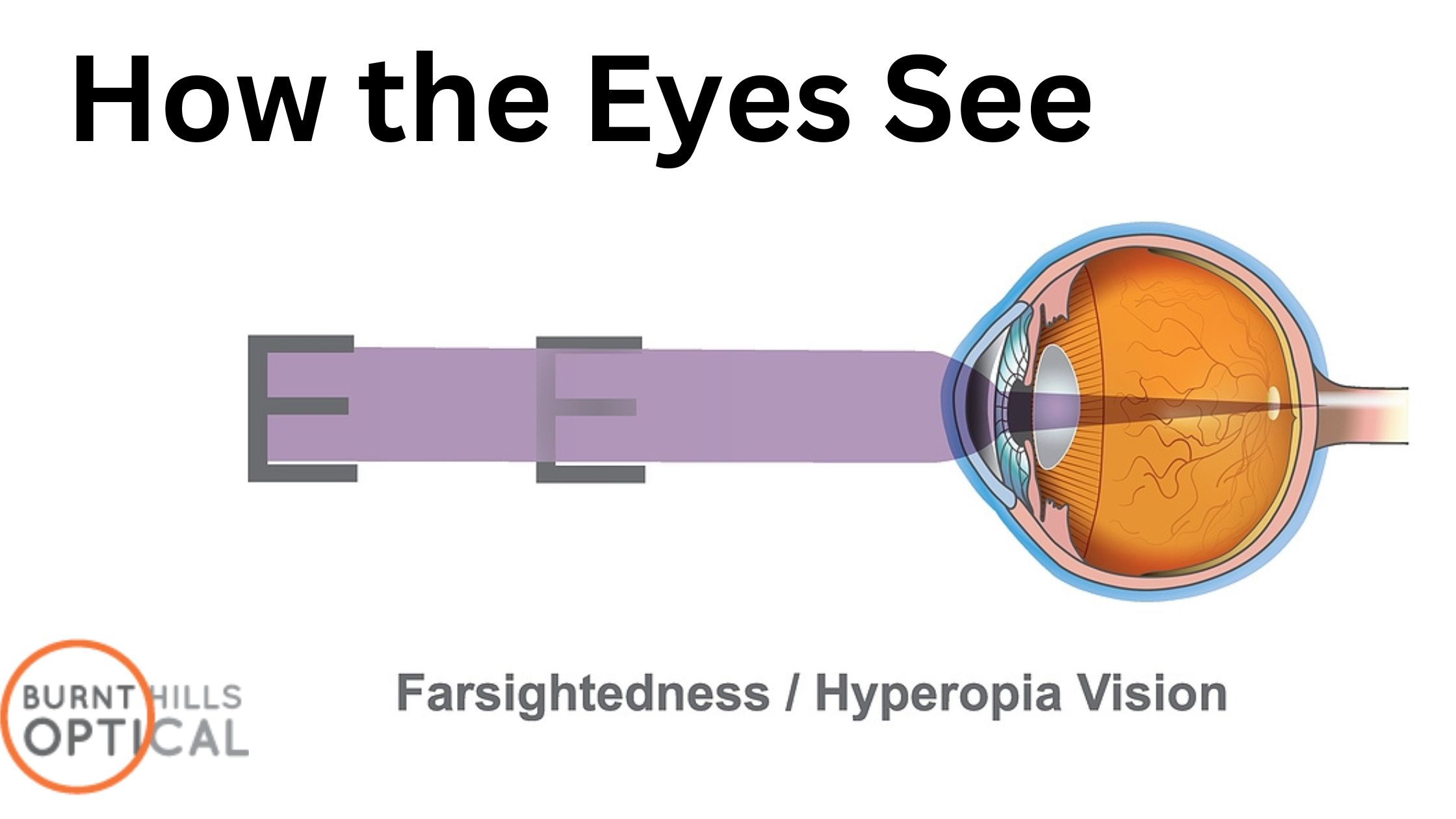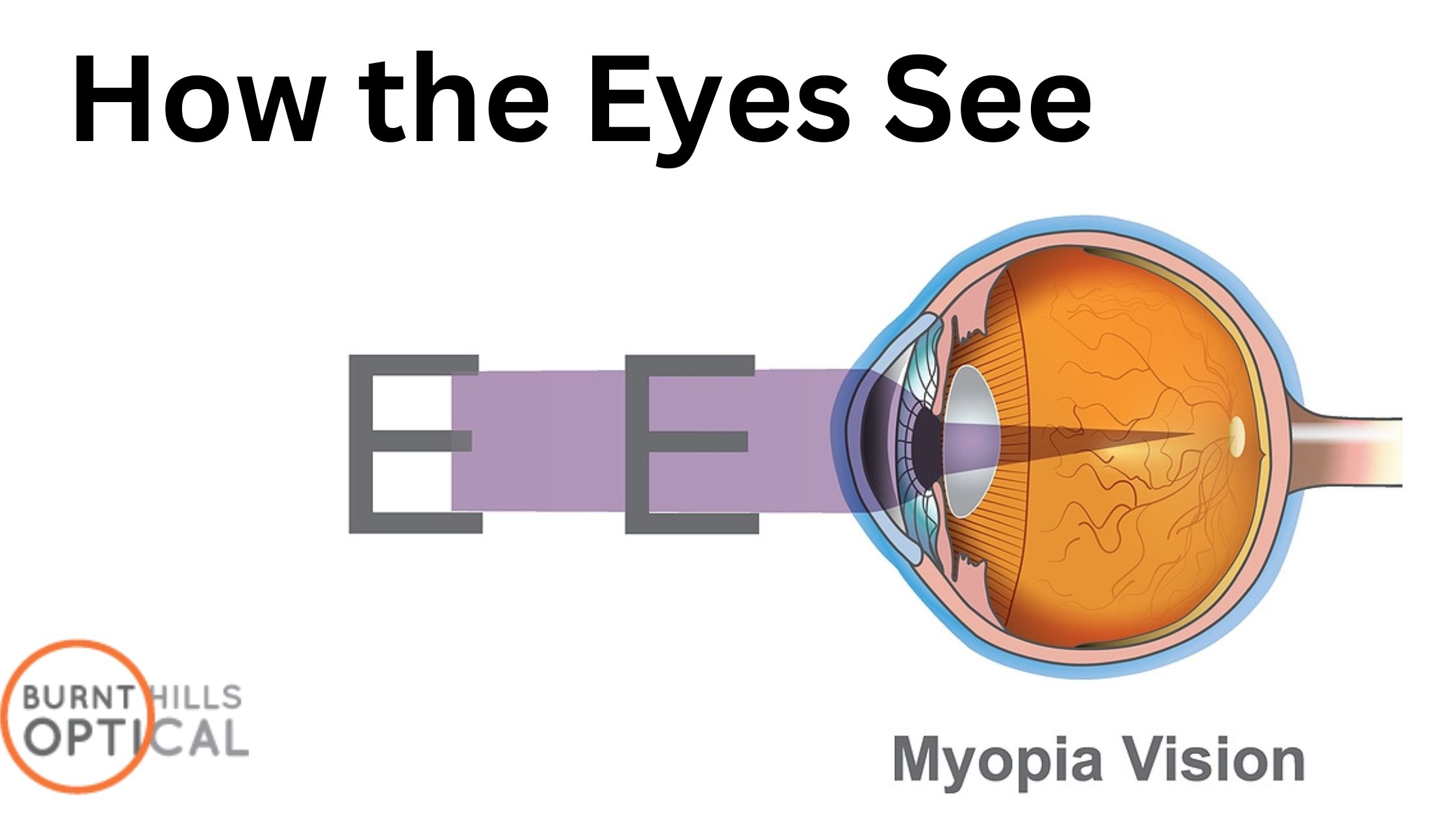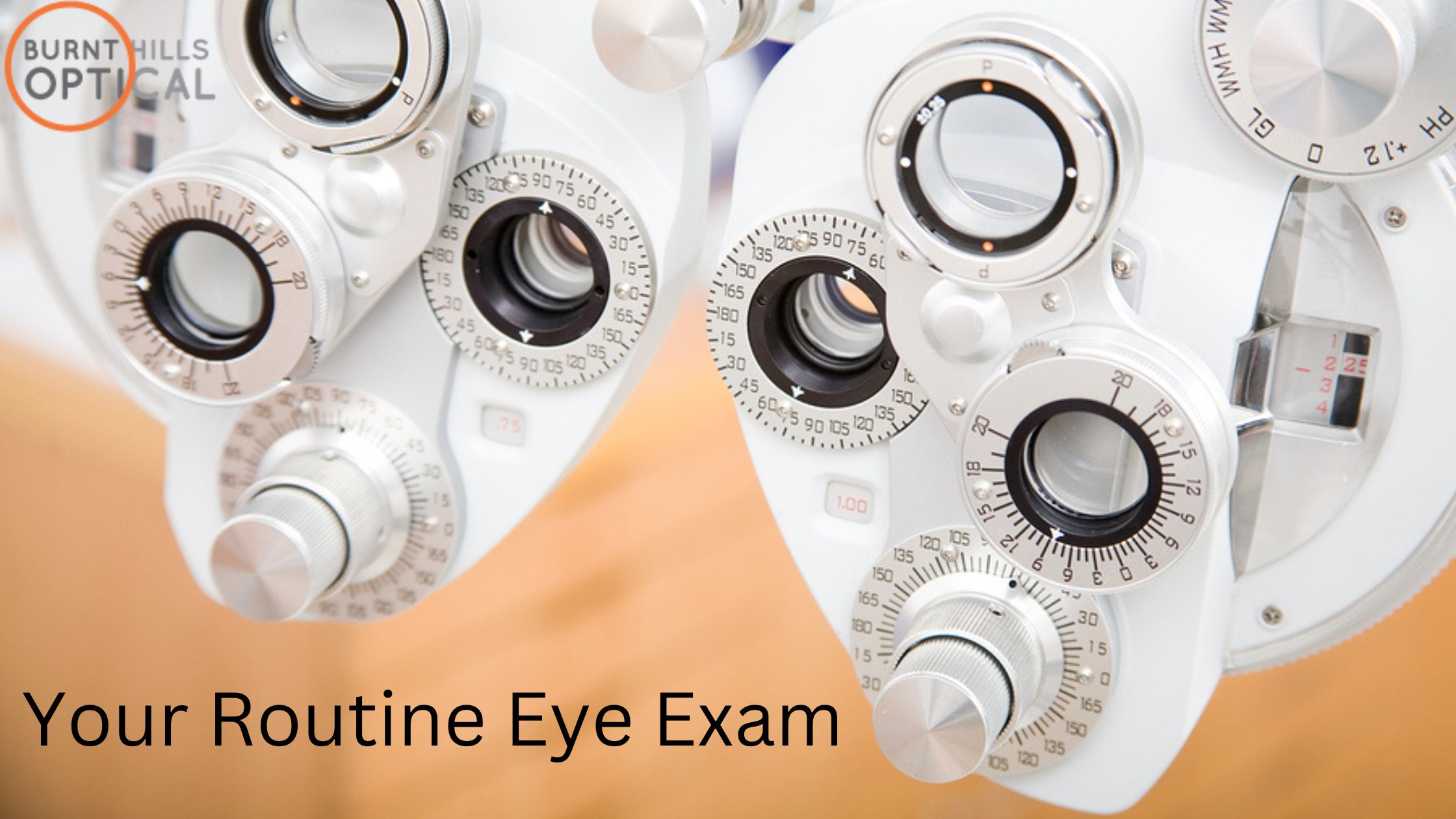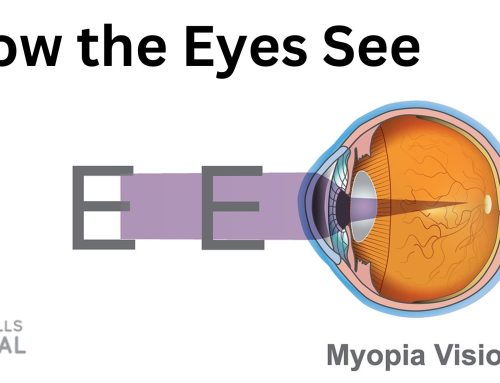The most common forms of vision impairment are errors of refraction — the way light rays are bent inside the eye so images can be transmitted to the brain. Nearsightedness, farsightedness, and astigmatism are examples of refractive disorders. Here we will discuss farsightedness, also known as hyperopia.
Farsightedness develops in eyes that focus images behind the retina instead of on the retina, which can result in blurred vision. This occurs when the eyeball is too short, which prevents incoming light from focusing directly on the retina. It may also be caused by an abnormal shape of the cornea or lens. This is a vision condition in which distant objects are usually seen clearly, but close ones do not come into proper focus.
In mild cases of farsightedness, your eyes may be able to compensate without corrective lenses. In other cases, your optometrist can prescribe eyeglasses or contact lenses to optically correct farsightedness by altering the way the light enters your eyes. Refractive surgery, such as LASIK, is another option for correcting hyperopia. Surgery may reduce or eliminate your need to wear glasses or contact lenses.
Farsightedness often starts in early childhood, but normal growth corrects the problem. If a child is still a bit farsighted when the eye has stopped growing (at around 9 years of age), the eye can usually adjust to make up for the problem. This allows the child to see better. But as we age, our eyes can no longer adjust as well, and farsightedness becomes more obvious.
Farsightedness often runs in families. In rare cases, some diseases such as retinopathy and eye tumors can lead to farsightedness. Farsightedness also increases the risk for crossed eyes (strabismus). If your child has crossed eyes, call an eye specialist (ophthalmologist or optometrist).
Common signs of farsightedness include difficulty in concentrating and maintaining a clear focus on near objects, eye strain, fatigue and/or headaches after close work, aching or burning eyes, irritability or nervousness after sustained concentration.
Basic vision screenings, often done in schools, are generally ineffective in detecting farsightedness. An eyecare professional can diagnose farsightedness and other refractive errors during a comprehensive dilated eye examination.
If you have any questions about this article or any other eye care issues, you can always ask us on our Facebook page. We promise a prompt response and would be happy to help ensure the health and well-being of your vision.









